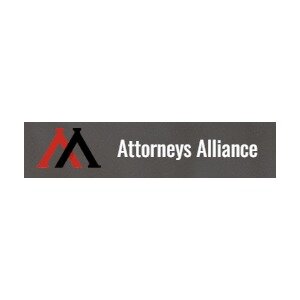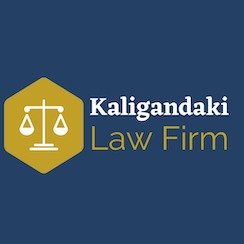Best State, Local, and Municipal Law Lawyers in Nepal
Share your needs with us, get contacted by law firms.
Free. Takes 2 min.
Or refine your search by selecting a city:
List of the best lawyers in Nepal
About State, Local, and Municipal Law in Nepal
State, local, and municipal law in Nepal encompasses the legal principles governing the structure, powers, and functions of various levels of government across the country. It primarily deals with the organization and operations of provincial and local governmental units, including municipalities and rural municipalities. With Nepal's transition to a federal system under the 2015 Constitution, there has been a significant emphasis on decentralization and the devolution of powers to these local bodies. This framework is designed to promote regional development, accountability, and local self-governance.
Why You May Need a Lawyer
Engaging a lawyer in matters of state, local, and municipal law can be crucial in several scenarios:
- Disputes regarding property boundaries, land use, or zoning regulations.
- Understanding and navigating local government procedures or obtaining necessary permits.
- Conflicts or disputes with local government decisions or actions that may affect personal or business interests.
- Community development projects that involve compliance with local regulations.
- Violations or issues related to local taxes, levies, or fines.
- Legal guidance for local businesses dealing with municipal regulations and local employment laws.
Local Laws Overview
Nepal's provincial and local governments have specific legal powers, including the ability to draft certain regulations and statutes through their assemblies and councils. Key aspects of local law that are relevant include:
- The Local Government Operations Act, 2017, which outlines the powers, functions, and duties of local bodies.
- Provincial government legislation that targets specific regional concerns such as agricultural policies, infrastructure projects, and natural resource management.
- Municipal bylaws that govern urban planning, building codes, and local business regulations.
- Environmental regulations to protect local ecosystems and natural resources.
- Public safety and welfare policies, including health and sanitation standards.
Frequently Asked Questions
What is the role of provincial and local governments in Nepal?
Provincial and local governments are primarily responsible for executing laws at a more localized level, providing public services, maintaining infrastructure, and promoting local development.
How can I challenge a decision made by my local municipality?
You can challenge a municipal decision by filing a grievance with the appropriate municipal council or seeking legal recourse through the courts if necessary.
What are some common local taxes and fees in Nepal?
Common local taxes include property taxes, business license fees, and service charges for utilities and municipal services.
How are local council members elected in Nepal?
Local council members are elected through regular local elections where registered voters in the respective area participate to elect their representatives.
Can I access public records from my local government?
Yes, access to public records is generally permissible under the Right to Information Act, 2007, unless restricted by other applicable laws.
What should I do if I face harassment from local authorities?
You should document the incident and seek legal assistance to file a complaint through the legal system or relevant administrative channels.
Do local governments have a role in education in Nepal?
Yes, local governments assist in managing public schools and educational resources, although curricula and overarching policies are set by the central government.
Are local governments involved in healthcare services?
Local governments play a role in providing healthcare facilities and services, focusing on local needs and supplemental to federal healthcare initiatives.
How are municipal boundaries determined in Nepal?
Municipal boundaries are typically determined by the central government in consultation with local authorities, taking into account population, geography, and administrative considerations.
What actions can be taken in case of illegal construction in my community?
You can report illegal construction to the municipal authority responsible for enforcement, or initiate a legal process if necessary.
Additional Resources
Consider utilizing the following resources for further guidance:
- Ministry of Federal Affairs and General Administration
- The National Association of Rural Municipalities in Nepal
- The Urban Development Ministry
- Bar Association of Nepal for legal assistance
- Local municipal offices for specific local laws and regulations
Next Steps
If you require legal assistance in state, local, and municipal law in Nepal, consider the following steps:
- Consult with a licensed lawyer specializing in local government law to discuss your particular issue.
- Contact local municipal offices to obtain relevant information and documents particular to your case.
- Use online legal resources or attend public forums or workshops on local governance issues.
- Consider mediation or negotiation with local authorities as a first step in resolving disputes.
Lawzana helps you find the best lawyers and law firms in Nepal through a curated and pre-screened list of qualified legal professionals. Our platform offers rankings and detailed profiles of attorneys and law firms, allowing you to compare based on practice areas, including State, Local, and Municipal Law, experience, and client feedback.
Each profile includes a description of the firm's areas of practice, client reviews, team members and partners, year of establishment, spoken languages, office locations, contact information, social media presence, and any published articles or resources. Most firms on our platform speak English and are experienced in both local and international legal matters.
Get a quote from top-rated law firms in Nepal — quickly, securely, and without unnecessary hassle.
Disclaimer:
The information provided on this page is for general informational purposes only and does not constitute legal advice. While we strive to ensure the accuracy and relevance of the content, legal information may change over time, and interpretations of the law can vary. You should always consult with a qualified legal professional for advice specific to your situation.
We disclaim all liability for actions taken or not taken based on the content of this page. If you believe any information is incorrect or outdated, please contact us, and we will review and update it where appropriate.
Browse state, local, and municipal law law firms by city in Nepal
Refine your search by selecting a city.

















